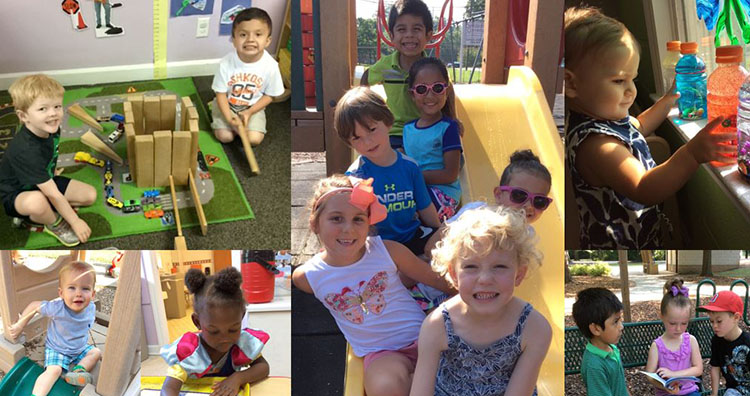
Davidson-Cornelius Child Development Center is celebrating 50 years
Oct. 24. The Davidson-Cornelius Child Development Center, now 50 years old, has launched a $195,000 capital campaign in September to help fund a new building and improvements to the grounds.
Located in Davidson, the early education and child care facility serves a diverse array of families and children in North Mecklenburg. It’s at capacity with a months-long waiting list.
“It essentially defines our community year after year. It impacts young lives in dozens of meaningful ways,” said Jim Duke, a former Cornelius Town Commissioner, who attended the campaign launch
The development center was founded in 1969 after a fire claimed the lives of three young children while their mother, who had no access to child care, was working outside the home to support them.

FOUCHE
A 50-year record of socially conscious support for working families commenced, with 5-star, full-time, affordable early education and child care. Scholarship support for children ages 6 weeks to Pre-K levels the playing field for working parents.
Cornelius resident Trey Fouche wants the diverse experience the center provides for his own children.
“We wanted a center that reflected the entire community, not just part of the community,” said Fouche, explaining that the center’s safe learning environment allows parents to achieve in their careers.
Fouche should know. He has a Ph. D. in educational leadership from Clemson University. The new director of experiential and leadership education at The Woodlawn School in Mooresville chaired the Department of Outdoor Leadership at North Greenville University for 12 years.
The DCCDC brings together parents and children from all races and economic backgrounds—considered critical community-wide goal in the Charlotte region.
We rank 50th out of the Top 50 US cities in upward mobility. This means that for a child born in poverty in Charlotte, it is harder to work his or her way up than any other large city in the United States.
The five major determining factors are income inequality, family structure, race, education and social capital. DCCDC takes direct aim at education and also social capital.
Childhood friends—and their parents—form the trust that builds between people, helping hold society together. Indeed, lower levels of social capital has a direct relationship to crime.
According to a the Charlotte-Mecklenburg Opportunity Task Force seeking to reorganize and rationalize our systems and structures, changing policies and practices and “otherwise boldly embracing” a vision of CharlotteMecklenburg as a community that cares about all our children and youth will make a difference.
About half the children at DCCDC receive sliding-scale scholarship support, ranging from 35 percent to 75 percent of the total tuition cost.
Right now there are about 40 children on the waiting list, representing about a year-long wait, said Anna Eaton Washington, executive director. She hopes to expand the center to accommodate 100 children.
She explained that the average cost of childcare in Mecklenburg County is about $12,000 a year. The minimum wage pays about $15,000 a year.
“We continue to operate at full capacity with waiting lists for each classroom, highlighting the tremendous needs for our early child education services in our community,” she said.
For more information on the DCCDC, visit www.dc-childdevelopmentcenter.org



